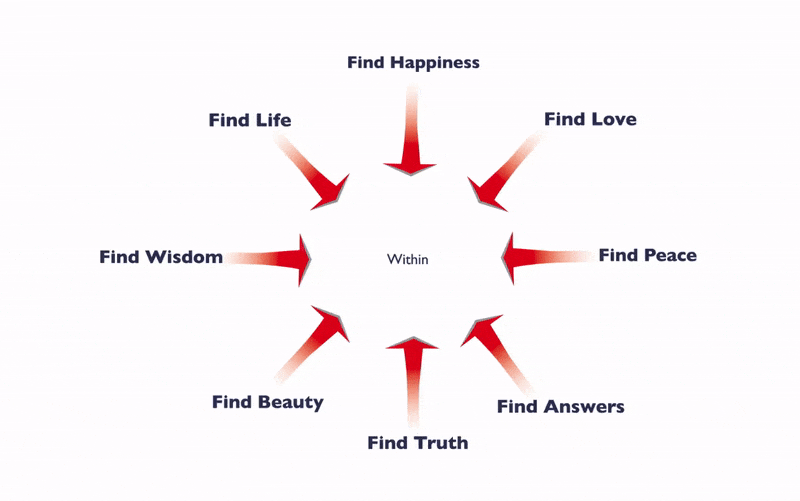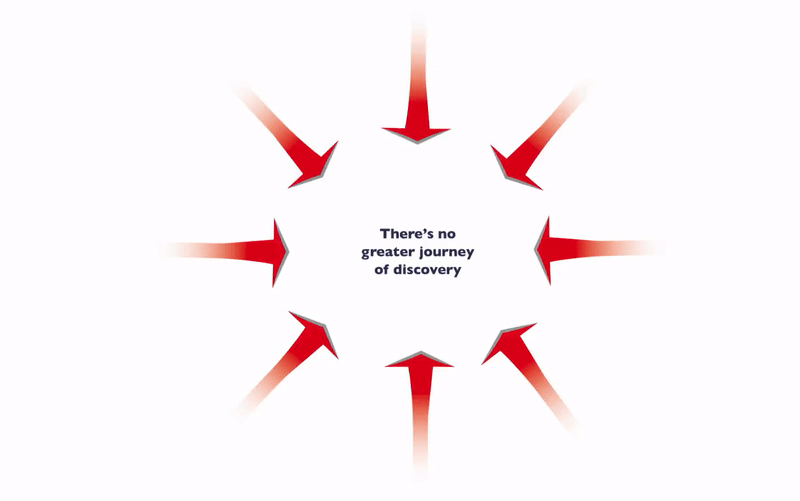11 week course in St Albans
Practical Philosophy
Look within
and find the person you are truly meant to be
Philosophy aims to set you free. Free from pressures and worries, free from limiting ways of thinking, free to grow and be yourself.
Take your first steps to freedom with our 11 week course.

Local Course
Local face-to-face course available in St Albans
Peace of Mind
Established 1937 in the UK. Delivering courses for over 80 years
Practical Wisdom
Courses in practical wisdom for everyday living. Meet with like minded individuals.
Offer only £80
Special offer – 11 week course £80
This popular course is practical rather than academic and draws on sources of wisdom from East and West, past and present.







Explore Life To The Full… through 11 weekly sessions
How the introductory course works
This St Albans course offers a practical means to discover fully who we are, understand how to relate to the world we live in and see what gets in the way of being happy, peaceful and free.
- Students are encouraged to test the ideas put forward in practice for themselves, in the light of their own experience.
- A tutor presents philosophical ideas, and leads a discussion based on what arises in the group.
- Practical rather than academic with the emphasis on personal knowledge and experience.
- A Tool kit is provided of practical and mindful exercises.
- Fresh thinking you can put into practice today
- New insights, Fresh Perspectives, Expertise in good company

By attending this 11 week course you will learn practical exercises that will help you
- Reduce stress
- Understand yourself and others
- Make better decisions
- Find contentment and simple happiness
- Discover the joy of living in the present moment
- Learn how to harness the transformative power of attention
- Uncover inner wisdom, potential and purpose
Next Introductory courses
Practical Philosophy Enrolment
- Starts 3 times per year:
- January, May & September
- Times: 7:15pm-9:30pm
- Duration: 11 weeks
- St Albans Girls' School AL3 6DB
Introductory Offer £80
Limited spaces

Self-enquiry through practical philosophy
Themes explored in our courses…
What is love, really?
Love of life is fundamental to wellbeing but what does it mean?
Love of friends and family is so valuable. How does that work and how can this often limited idea be expanded to enrich every aspect of our life?
The basic philosophical tools for building understanding and the depth of experience of life will be given and you will get a chance to try them out and ask questions about what you find.
Philosophy is about living joyfully and having a fulfilling life
It will introduce all the main topics of philosophy and give you a chance to ask the important questions of life.
What is beauty?
Is there such a thing as absolute beauty?
Beauty has the capacity to open the heart and bring delight. In this session we discuss our direct experience of beauty in its different form: of the sensory world, of thought, of feelings, of the inner nature, and of conduct.
We consider Plato’s idea of there being ultimately one beauty – beauty absolute – ‘not knowing birth or death, growth or decay’.
How do we seek happiness? True happiness and unity: ‘May all be happy’ as an intent. Tolstoy: happiness through serving one’s neighbour. Observation, the conscious perceiver and the present moment.
Is happiness natural? Analogy of light bulbs. Relationship between happiness and law.
Bentham, Mill. Gandhi’s criticism and an alternative view to utilitarianism. The art of listening: practical exercise
Hedonism, Epicurus and Plato. Plato suggests two categories, necessary and unnecessary pleasures. Introduction to the Upanishads: finding satisfaction in oneself.
Divine goods: wisdom, self-control, justice and courage. Human goods: health, beauty, strength and wealth. Are these the way to happiness?
Introduction to Marsilio Ficino, renaissance philosopher. Key phrases inscribed on academy walls. Rejoice in the present. Richard Jefferies
Introduction to Lao Tzu: Tao Te Ching. Tea ceremony. Exploring effortless action.
Introduction to Patanjali and the 8-fold system of yoga, meditation, contentment. What about ambition? Finding happiness in work: 2 principles for finding happiness in work.
Two more principles for finding happiness in work. Practical exercise to discover more about the principles of work in action.
The connection between wisdom and happiness. Marcus Aurelius; you don’t need much to live happily. Review of the term.
An overview of the School of Philosophy, our teaching methodology, groups and practices and how they can benefit you.
Three forms of love: Eros, Philia, Agape. Pure love.
Love of life is fundamental to wellbeing but what does it mean?
Shakespeare, love is an ever-fixed mark. Love is the natural in-between.
Great debates in the forest on loving the essence. Experience of Viktor Frankl.
Circles of love, ideas of other, desire to control. Meeting all as if for the first time.
The meditations of Marcus Aurelius. Inner organ of mind.
Expressions of love from Sufi philosophers.
Choosing the emotional ground. Words of Epictetus and Phillis Wheatley.
Work for the sake of love, duty and reward.
If you want to be loved, then love. Love and wise law.
Location
- St Albans Girls' School
- Sandridgebury Lane, St Albans, AL3 6DB
- Starts 3 times per year
- January, May & September
- Times: 7:15pm-9:30pm
- Duration: 11 weeks
- There will be a refreshment break
- Limited Places
- £80 for 11 weeks
Find Us on the Map
St Albans



Frequently asked questions
The course is practical in the sense that it takes philosophical ideas and shows how they can be of direct use in our everyday lives. The intention is to stimulate enquiry and through this expand the way we look at the world and ourselves.
What we want in life is very simple: happiness, freedom, fulfilment, peace and security – you could no doubt add more. We’re all the same in this, but how often do we lose our way and end up in the mire? We pin our hopes to external things and end up frittering away our lives chasing what never, ultimately, satisfies.
And then, to make things worse, in pursuit of these limited external things, we end up squabbling: whether it be two children over a sweet, two families over a hedge, two countries over a patch of land, or two religions over a set of beliefs.
Worse still, in losing sight of the true desires, mistaking the externals for what we really want, we change aspects of our natures and blunt our perceptions. The battered spouse; the abused child, the drug addict and the drug baron, the victims of genocide or religious persecution, are all the products of genuine, true desires (for love, happiness, etc.) operating under terribly, horribly distorted perceptions.
For most it doesn’t get so extreme – we rub along picking up crumbs as and where we can, occasionally having spats with others who want the same crumbs. But somehow the crumbs, even the really big ones, never truly satisfy.
It comes down to correcting the perceptions and wise men and women throughout the ages have been pointing the direction. But it’s not a matter of ideas – of accepting one set of beliefs and rejecting others. Understanding is seeing things clearly; seeing things aright.
That is why Practical Philosophy is so valuable. Concepts and ideas can be important, but are of limited use – at best pointers of where to look. They only really come to life and have meaning through our own observation and experience. That is why a simple injunction is given to all students early on in the course: neither accept nor reject what is heard in the course, but go away and look – put it to the test of observation and experience; make it practical.
There’s nothing to acquire, nothing to store up. What’s truly seen and understood will never leave, and will pop up from nowhere when needed – it’s not a baggage to carry around.
PRACTICAL PHILOSOPHY can open the door to freedom, wisdom and happiness – and a real understanding of human nature.
Our students meet in groups, led by a tutor who introduces the topic and provides related input from great teachers, philosophers, poets, scientists (‘wise people’ in other words).
We look at the power of the present, how to be more yourself, happiness and its sources, wisdom and its uses, and beauty and its causes.
We also teach a simple awareness exercise and give you ‘homework’ in the form of one or two simple practices to try out during the week. (Don’t worry – no written homework is required. There are no exams. No qualifications. The only requirement is an open mind and that you act respectfully toward your fellow students.)
You’ll find you learn more from experience than theory and your observations based on practice are far more useful than just opinions.
Test what you hear, then come back next week and share what you’ve discovered. The more you practise, the more you get out of the course.
With a wider view, day-to-day life takes on a different and fresher perspective.
The course is designed for those eager to make the very most of life, unfettered by the passing show, unchained by the fads of the moment.
It appeals most to those who are undaunted by the great questions of human existence. What is it for? What am I for? Where do I fit in?
It is presented in ten sessions referred to collectively as ‘Introductory Practical Philosophy’.
1. The Wisdom Within – Philosophy means the love of wisdom. Our course is intended to show how philosophy may help us enjoy richer, less stressful and more useful lives. This opening session considers these aims further, and introduces simple exercises in mindfulness and the application of wisdom which can be practised in daily life.
2. Know Thyself – Who am I, really? My body? My emotions? My strongly held beliefs? My soul? Possibly all of these? Possibly none? Such questions have preoccupied philosophers down the ages. We look at practical ways to explore who we really are and how to tap our true potential.
3. Being Awake – Often the most notable quality of wise people is their alertness to the subtleties of a situation. They are awake, perceptive and curious. We look at deeper levels of awareness, and consider how we may become more awake to ourselves, our surroundings, and the events we meet.
4. The Present Moment – We review our own experience of attention through a model featuring attention centred, captured, open and scattered, and how these each relate to the past, present and future. We examine the extraordinary brightness and freedom naturally available in the present moment. A straightforward practice is introduced to help us experience this more frequently.
5. Living Justly – According to Plato, justice and injustice do not start ‘out there’. They begin within ourselves. For justice to prevail, Plato suggests that we must learn to avoid being ‘tyrannised’ by our passions and fears to the extent they overrule our reason. We discuss the practicality of Plato’s ideas on justice in our daily lives.
6. Understanding Energies And Using Them Wisely – Sometimes we seem not to have enough, or the wrong kind, of energy. A wise person can act consistently despite these varying conditions. We consider how to recognise differing energies, how to gain and conserve them and how to use them wisely.
7. The Light of Reason – We look at the philosopher Shankara’s notion that reason is the ability to discern the transient from the eternal, the changing from the unchanging. This leads to the question what, in our experience, can actually be said to be unchanging? Suggestions are given to help further consideration of this question during the coming week.
8. The Power of Beauty – Beauty has the capacity to open the heart and bring delight. In this session we discuss our direct experience of beauty in its different form: of the sensory world, of thought, of feelings, of the inner nature, and of conduct. We consider Plato’s idea of there being ultimately one beauty – beauty absolute – ‘not knowing birth or death, growth or decay’.
9. Unity in Diversity – When we look around, we see enormous diversity in nature. The wise person looks for the unifying factor: that which allows all this apparent diversity to be seen as part of a single whole. Seen in this way, life then has the best chance of being led freshly and openly.
10. The Desire For Truth – Practical philosophy is about discovering the truth of things – not theoretically, but in our own experience. In this final session we look back and ask ourselves how our search for truth has fared as the term has progressed. We discuss what has been discovered and how, in our own way, we may continue to develop it in our daily lives.
Subsequent terms focus on Happiness, Love and Freedom and can lead on to meditation, the different but complementary paths of action, knowledge and devotion; and, importantly, the chance to build on the practices learnt in earlier terms.
Yes.
In the first week of the course, we introduce our students to a simple practice we call ‘The Awareness Exercise’. This is a simple exercise of just sitting still, being relaxed, gently focusing the mind on each of the five senses and simply being present in the moment NOW.
Usually the effect is of finding inner stillness, peace and happiness. We encourage our students to practise this exercise regularly during the week between classes.
Listen to the Awareness Exercise.
The Practice of the Awareness Exercise
First, find a balanced position of the body . . .
Let the mind be free of any concern or pre-occupation . . .
Let the body be still . . .
Be aware of where you are now . . .
Feel the touch of your feet on the ground . . .
The weight of the body on the chair . . .
Feel the touch of the clothes on the skin . . .
Feel the air on the face . . .
If they are open, let the eyes receive colour and form without any comment . . .
Be aware of the sense of smell . . .
And the sense of taste . . .
Be fully here . . .
Now be aware of hearing . . .
Let sounds come and go without any comment . . .
Let the hearing extend right out to the furthest and gentlest sounds, embracing them all . . .
Simply rest in this awareness for a few moments.
Note: This simple practice has been a constant feature of our courses ever since the 1960s. During that time, thousands of students have come to know and to value it as they integrate it into their busy lives. The Exercise is one of the great contributions our School has made to the growing awareness and appreciation of mindfulness and meditation in the West.
Online by using the enrol button.
If you register online, you will receive a confirmation email with your day of attendance. If you register by any means other than online, you will receive a receipt confirming your registration.
No, all you need is an open and enquiring mind. The course is intended for everyone, regardless of education, occupation, race, political or religious belief.
First you need to enrol on a course. The in-person courses are available in St Albans and at many other local venues up and down the UK. A local map can be found on this page.
If you have any questions simply message us on Twitter at https://twitter.com/PhiloStAlbans
or email us at: philosophy.course@ntlworld.com
What some of our students say...

“Absolutely loving the course!! …Really changing how I think about things and life in general.”

“...I am benefiting greatly from the content and the practical nature of it. Thank you, it is enriching my life.”




“The daily awareness exercises … have changed my thinking and I feel more relaxed about situations in the media and other aspects of my daily life.”

"The knowledge and experience that I have gained from the philosophy classes has helped me to discover more about myself and better prepare for dealing with life's daily surprises and challenges."

